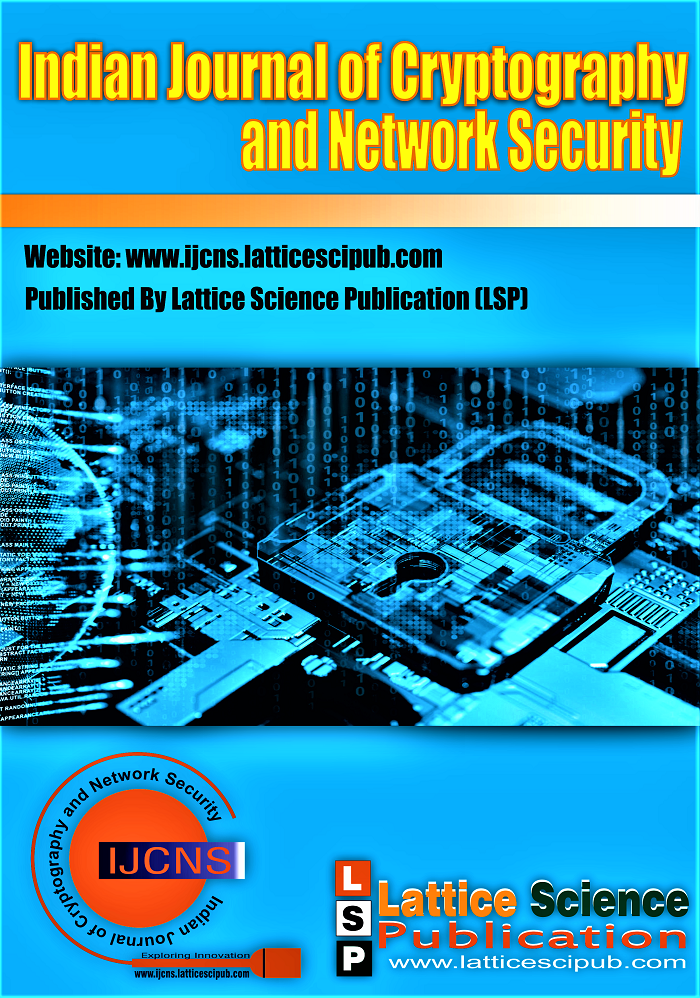Software Support for Arbitrary Precision Arithmetic in Programming Languages
Main Article Content
Abstract
Arbitrary precision arithmetic, also known as bignum arithmetic, is a computational technique that allows programmers to perform arithmetic operations on numbers with significantly higher precision and magnitude than what is typically supported by the built-in numerical data types in programming languages. This technique is especially useful when working with extremely large or extremely precise numbers, such as in cryptography or scientific computations. Arbitrary precision arithmetic has many applications in the areas of Cryptography, Numerical Computation, Statistical Analysis, and High Precision measurements. For example, the calculation of the modulus in the RSA algorithm involves numbers with 1024-bit numbers and higher. An arithmetic calculation involving Multiplication and exponentiation of such numbers using Modulo arithmetic cannot be easily carried out in the existing programming Languages unless special software is provided. We can calculate the mathematical constant Pi to many thousand decimal places using the support provided in Programming Languages. Many programming languages provide built-in support for libraries for arbitrary precision arithmetic. We discuss the support provided in C/C++, Java and Python Languages with examples. Besides Programming Languages, Toolkits like Matlab and Sagemath also are used for scientific computation and special software support provided in these toolkits can enable arbitrary precision arithmetic. Most Programming Languages have support for floating-point arithmetic. We also discuss how arbitrary precision floating point arithmetic. can be supported in C/C++, Java, and Python. In addition, we discuss support for arbitrary precision integer arithmetic in Ruby, Javascript and Matlab and support for arbitrary precision floating point arithmetic in the Perl Language. Finally, we provide an example of computing the constant Pi to many decimal places using the sagemath tool.
Downloads
Article Details

This work is licensed under a Creative Commons Attribution-NonCommercial-NoDerivatives 4.0 International License.
How to Cite
References
Krougly, Z.L., Jeffrey D.J. & Tsarapkina, D., Software Implementation of Numerical Algorithms in Arbitrary Precision, 15th International Symposium on Symbolic and Numeric Algorithms for Scientific Computing, 10.1109/SYNASC.2013.25, 2013.
Cheng, Y & Cheng, G, A Unified Root Algorithm in Bignum Arithmetic, IEEE 3rd Advanced Information Technology, Electronic and Automation Control Conference, 10.1109/IAEAC.2018.857778, 2018.
Samuel, Vivien, Parallel Integer Multiplication, 30th Euromicro International Conference On Parallel, Distributed and Network-based Processing(PDP), 10.1109/PDP55904.2022.00024, 2022.
www.sagemath.org, Free Open-source Mathematics Software System
www.i4cy.com Calculating Pi to a high precision.
Aliff, M., Hamdi, A. H., Yusof, I., & Samsiah, N. (2019). Development of Control System for Dual NC Machine with Single 6-Axis Robot. In International Journal of Innovative Technology and Exploring Engineering (Vol. 9, Issue 2, pp. 4505–4511). https://doi.org/10.35940/ijitee.b9017.129219
Novel Space Efficient Indices for Kannada Text: VKTPY Trie Family. (2019). In International Journal of Engineering and Advanced Technology (Vol. 9, Issue 1, pp. 6312–6320). https://doi.org/10.35940/ijeat.a1985.109119
An Efficient Exchanged Hyper Cube for Parallel and Distributed Network. (2019). In International Journal of Recent Technology and
Engineering (Vol. 8, Issue 2S10, pp. 821 –829).. https://doi.org/10.35940/ijrte.b1150.0982s1019
Muthukrishnan, Dr. R., & Prakash, N. U. (2023). Validate Model Endorsed for Support Vector Machine Alignment with Kernel Function and Depth Concept to Get Superlative Accurateness. In International Journal of Basic Sciences and Applied Computing (Vol. 9, Issue 7, pp. 1–5). https://doi.org/10.35940/ijbsac.g0486.039723





